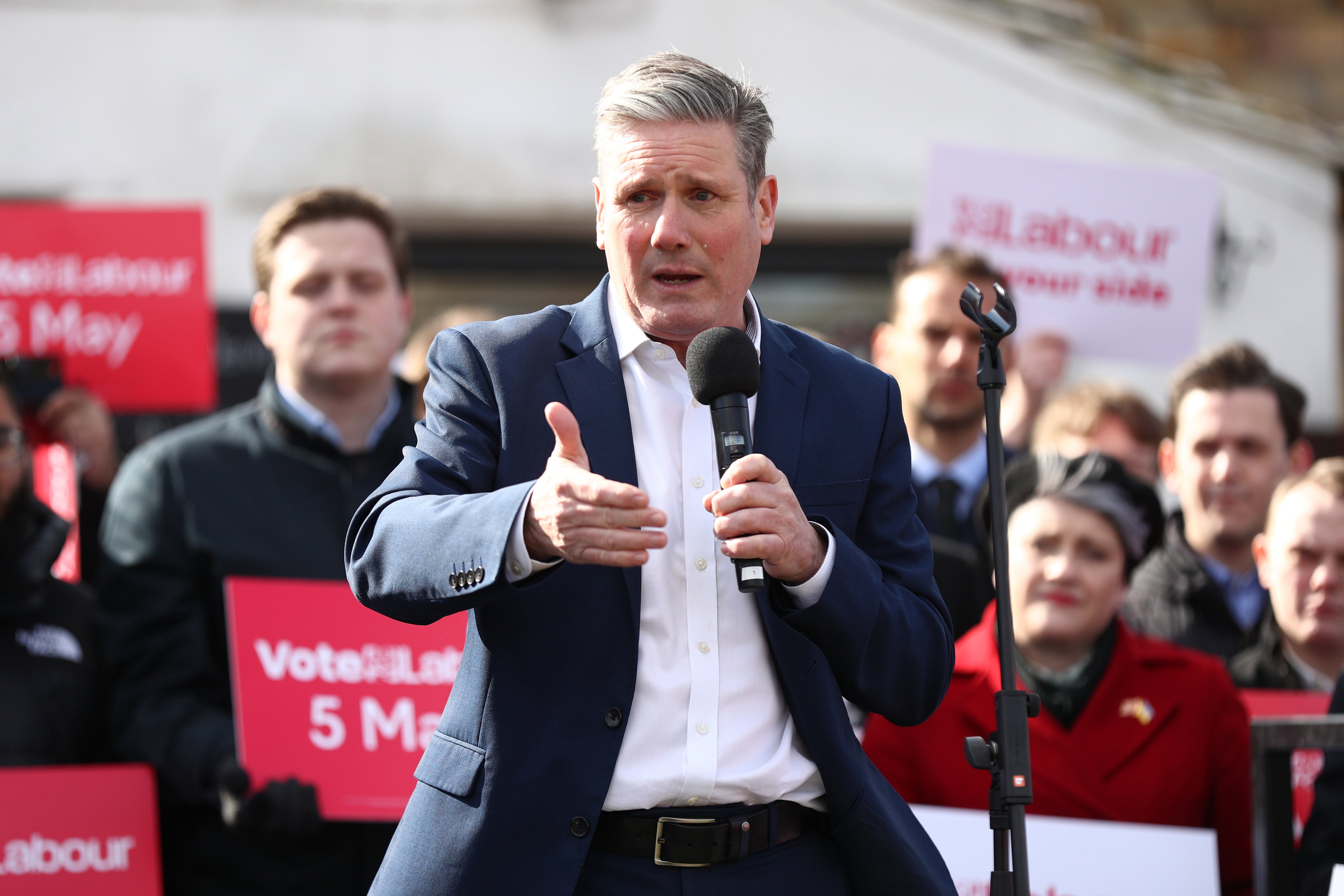Punchy Keir Starmer is borrowing from the Tories’ box of dirty tricks
The Labour leader has accused Rishi Sunak of ‘crashing the economy’, writes John Rentoul


Labour folk are still indignant about the way that David Cameron and George Osborne blamed Gordon Brown’s government for the financial crisis of 2008. It was a problem caused by the US housing market, but the Conservatives cynically used it to attack Labour.
That grudge is still raw, and Greg Hands, the Tory party chair, keeps it so by tweeting and retweeting the “I’m afraid there is no money” letter that Liam Byrne wrote to his successor as chief secretary to the Treasury in 2010.
Rishi Sunak stoked the outrage at Prime Minister’s Questions today by quoting it too: “We all remember the last time they were in power: there was no money left for the country.”
But Starmer is determined to learn the lesson of last time. He shares the view of many Labourites that the party failed to fight back hard enough against the Tory slander, either before the 2010 election or before the 2015 contest, when Cameron waved a copy of Byrne’s letter at every hustings meeting.
Starmer twice accused Sunak of having “crashed the economy”. For the second week running he quoted Osborne, who had called Liz Truss and Kwasi Kwarteng “vandals”. It is an unfair attack, because Sunak disagreed with Truss’s unfunded tax cuts and he and Jeremy Hunt have rescued the situation and restored common sense and stability.
But it is not as unfair as blaming Brown for the failings of the US housing market and its banking regulation. Brown was the one global leader who had a plan, and who helped “save the world” from a more serious recession that would have cost millions of jobs. Sunak, by contrast, does share some collective responsibility for last year’s turmoil. He is a member of the same party as Truss and Kwarteng, and indeed was a member of the same cabinet until last year’s leadership crisis.
Starmer has also decided to fight back against the Tories’ deployment of Byrne’s note. For his final question, the Labour leader listed the failings of the Tory government: “Debt doubled since 2010; growth down; tax up; the economy crashed – they’re gonna need a bigger note.”
It was a weak line in the chamber, but it is politically significant. Starmer calculates – and he must be right – that the voters care about the cost of living now, and blame the government for it, rather more than they care about what happened 15 years ago. They have forgotten the details. Who remembers now that Byrne intended the note as a private joke for his expected successor, Philip Hammond, with whom he got on well, and who confirmed to me that he would have kept it confidential – but that it fell into the hands of David Laws when the Liberal Democrats secured the No 2 post in the Treasury as part of the coalition deal?
If there is a residual folk-memory of Labour fiscal chaos, probably with a bit of semi-mythical winter of discontent thrown in, it must be outweighed by a feeling that the Tories are responsible for the recent slump in living standards.
Are the Conservatives responsible for “crashing the economy”? Of course not. As Ed Balls, the former shadow chancellor, said, the economy has suffered from three “once-in-a-century” shocks in the past seven years: Brexit (for which the British people voted), coronavirus (and the public always wanted longer, more severe lockdowns) and the global energy price spike.
It is legitimate to argue that the British government has handled the second and third challenges less well than those of other countries, so Labour’s allegation that Sunak personally has “crashed the economy” could be defended as shorthand for “the Tory government has managed the economy less well than it should have done”.
It would be equally legitimate, of course, to point out that Labour wouldn’t have done any better – that if Jeremy Corbyn had won in 2017, for example, things would have been unlikely to have ended well.
Indeed, Starmer’s attempt in Prime Minister’s Questions to suggest that a Labour government would be doing things differently and better was unconvincing. The Labour leader attacked the government for scrapping housing targets, whereas it was only a few months ago that Labour was accusing the Tories of wanting to build houses in Lib-Dem-facing seats against the wishes of local people.
But Labour doesn’t actually need much by way of policies that might make people better off in the longer run. It just needs the voters to believe that Sunak “crashed the economy”.
Some Labour people won’t like it. Chris Mullin, the former Labour MP whose fourth volume of diaries is published next week, writes that he hopes his party won’t stoop to such Tory tactics. Too late for that, I fear.






Join our commenting forum
Join thought-provoking conversations, follow other Independent readers and see their replies
Comments